major longer form documentaries
- Mending Ways: the Canela Indians of Brazil
(released on Discovery as: Intimate Truths of the Canela Tribe) - Headstrong: Inside the Hidden World of Dyslexia and Attention Deficit Hyperactivity Disorder
- Passion and Discipline: Don Quixote’s Lessons for Leadership
- Heroes and History: Lessons for Leadership from Tolstoy’s War and Peace

Mending Ways: the Canela Indians of Brazil

For the Canela, peace is more important than justice, and sharing - especially of sexual partners-means survival and prosperity. By putting the good of the tribe first, the Canela have retained their tribal identity for centuries, thanks both to the bonding that occurs through ritualized, extramarital, multiple-partner sex and to their ability to maintain communal harmony via their intricate family relationships. But can they survive the outside influences of sexual monogamy and materialism, which have finally infiltrated the tribe? This program, based on the research of anthropologist Dr. William H. Crocker, documents the unique Canela way of life, focusing on their extraordinary bonding rituals and their conflict resolution skills.
Filmmaker Steven Schecter first visited the Canela Indians in the southern basin of the Amazon, in 1975 when he was 18 years old. Working with anthropologist William Crocker, he was adopted into a Canela family, and spent several months filming his neighbors and relatives on the village circle. Enjoying access rarely granted to outsiders, Schecter returned in 1997 to see how his Canela friends were faring. Mending Ways is the intimate story of a few Canela individuals, following their lives and loves over a twenty year period.
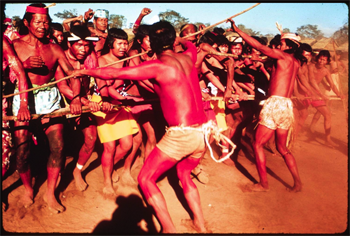
The Canela have stayed together and preserved their traditions despite 200 years of contact with outsiders. Sharing is of paramount importance for them, not only of food and other goods, but of sex as well. Mending Ways looks at their rituals of extra-marital sex where many men take turns having relations with one woman. Perhaps most astonishing to us is one woman’s description of how much she enjoyed such relations. The film explores the conflict that arises when one man doesn’t want to share his wife with the group. Here is where the Canelas’ “mending ways” preserve the unity of the tribe. The one-hour program has been culled from over 90 hours of film and video.
back to top
Headstrong: Inside the Hidden World of Dyslexia and Attention Deficit Hyperactivity Disorder
Living in the hidden world of Dyslexia and ADHD is part of everyday life for some people. Even though they love words, trying to read poetry or a novel is like listening to music with only half of the notes. Headstrong is a half hour documentary that looks at the lives of several people who have learned to use these learning differences to their advantage.
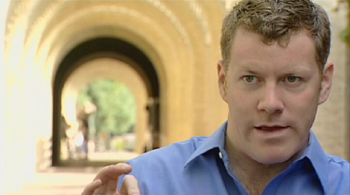
In Headstrong, Ben Foss discusses what it is like living with Dyslexia and ADHD, the two most common forms of learning differences. Over 20 million people in the US alone have these conditions, making it difficult to recognize social cues, organize information, direct attention, and recall facts. Most people go through life trying to hide their Dyslexia and ADHD, while they struggle in school and have a hard time doing entry level work. People with Dyslexia and ADHD struggle with reading, often making them feel left out and powerless. Reading and writing are important measures of your confidence as a human being.

Joe Stutts, formerly in the US Army, is highlighted in this film. He successfully sued the Federal Government for discrimination in the work place, based on his inability to read. When Ben Foss started law school he had a sunny disposition, but then soon realized his Dyslexia was going to make it an uphill battle to keep up. He started to get physical nerve pain from the stress. Joe Stutts started drinking excessively in order to cope with his Learning Disabilities. He contacted the EEOC because he did not receive an apprenticeship due to his inability to read. Ben Foss was pushed to a breaking point in law school, and he became depressed. He started talking openly about his Dyslexia which helped, and he ended up completing Business School and Law School at Stanford

Stephanie May was diagnosed with ADHD; she has trouble with information retrieval, speed, and accuracy. She brings a letter of disclosure to her college professors so they are legally obligated to provide special accommodations for her. Jason Shiver struggles to make it in high school. He is coming up with a plan to become more independent and cope better with his Learning Disabilities, such as using speech software on computers, and taking exams in a separate room so he can read the exam questions aloud.

Renita Pitts grew up in the projects in Kansas City. She was a drug addict on welfare, and she and her children were homeless at times. Renita said she felt dumb most of her life because of her learning disabilities, but she turned her life around at age 36 when she went back to school. After embracing her disabilities and attending a college with Learning Disability accommodations, she is now earning a bachelors degree and has been on the deans list. Joe Stutts fight to take on dyslexia discrimination in the workplace has made a huge impact. Stephanie May believes that helping people to improve themselves and the whole system is what the American Dream is all about.
back to top
Passion & Discipline: Don Quixote’s Lessons for Leadership
Filmmaker Steven Schecter has collaborated with Stanford University professor James March to produce a visually beautiful and intellectually compelling interpretation of the contemporary meaning of Cervantes' masterpiece, Don Quixote.
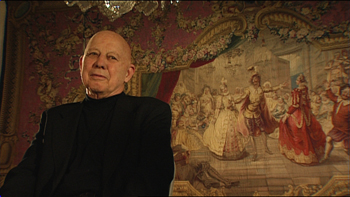
Passion and Discipline answers the paradoxical question: How can Quixote, who failed at all he attempted to accomplish, be a source of inspiration for modern leaders? The answer is found in Quixote's imagination, commitment, and joy. The Quixote message is an aesthetic message about the creation of meaning in life and a moral message about the importance of knowing who you are. Quixote reminds us that there are other things more important than success as we define it. He also reminds us that "vision", that all-important quality of leaders, is a close cousin to madness.
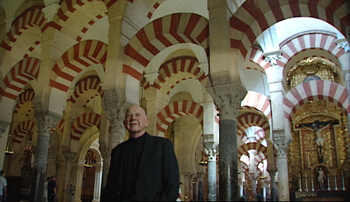
This unusual film succeeds in unexpected ways. Passion and Discipline breaks down boundaries of filmic essay and traditional documentary through rich use of archival footage and beautifully realized original sequences filmed in Spain, France, Denmark, and the United States. Just as Quixote traveled far and wide in search of adventure, this film leaves no stone unturned in its quest for the meaning of Quixote. Spanish and English language versions of the Quixote story are interwoven with scenes of flamenco dancing; remembrances of leaders from Martin Luther King to Bill Gates; well-chosen references from Japanese, French, and American feature films; engaging interviews with contemporary leaders drawn from business, government, and education; and finally March's erudite narrative commentary, together form a fascinating tribute to Quixote's message. The film's triumphant ending proclaims: "After 400 years, Quixote lives!"
On a journey from the plains of historic La Mancha to the high-tech companies of Silicon Valley, Stanford Professor James March pursues the characteristics that define a leader: imagination, commitment, and joy. He argues that too much reliance on the logic of consequences can impede leadership. By not losing sight of who they are, what they value, and what they want to achieve, leaders affirm their commitment to the promise of something greater than what currently exists.
back to top
Heroes and History: Lessons for Leadership from Tolstoy’s War and Peace
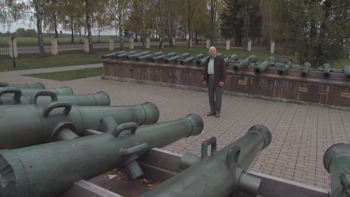
Professor Emeritus James March takes a look at the lessons of Tolstoy’s War and Peace for leadership, examining the limitations of heroic visions of leaders that Tolstoy exposed. The film uses the portrayal of leaders in War and Peace as a basis for raising questions about standard heroic stories of leadership. It explores some ways in which the complexities and ambiguities of history make standard narratives emphasizing the visionary role of leadership in history more mythic than real.
The film explores alternative conceptions that emphasize the significance of the density of ordinary competence in organizations, the development of capabilities without clear intentions for subsequent opportunistic use, and the importance of beauty.
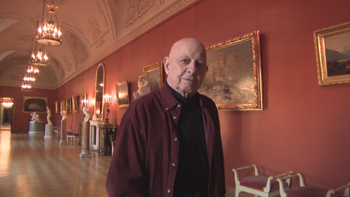
History is not produced by the dramatic actions and postures of leaders, but by complex combinations of large numbers of small actions by unimportant people. War and Peace suggests that leadership may be better served by passivity and opportunism than by the pursuit of bold goals.
Among other sites, these explorations take the viewer to the battlefields of Napoleon’s 1812 invasion of Russia, to the Florence of Cosimo d’Medici, and to business schools in Denmark and the United States.
Heroes and History was written and narrated by James March, and produced and directed by Steven Schecter, the same team that examined the leadership lessons of Don Quixote, in a previous film: Passion and Discipline. It was filmed in Russia, Italy, Denmark, and the US.
back to top
